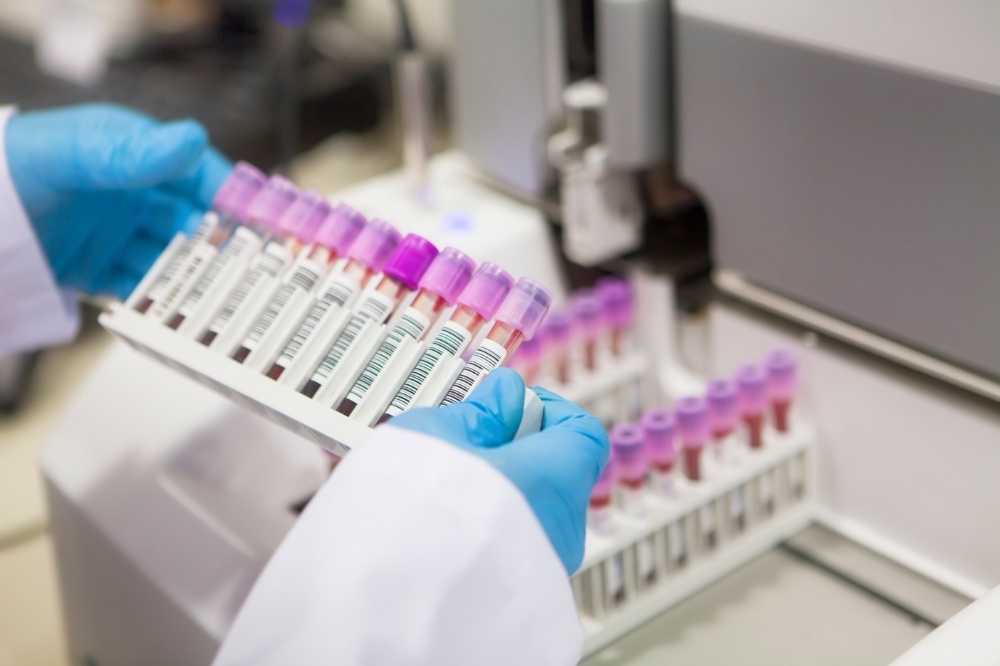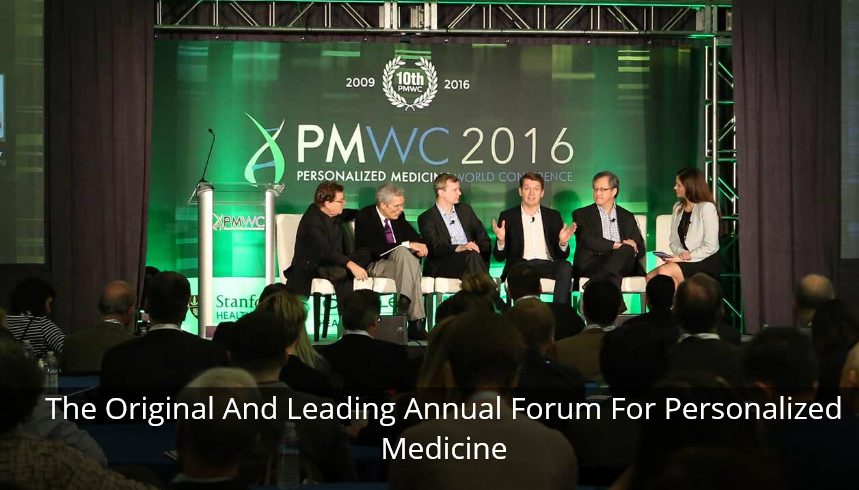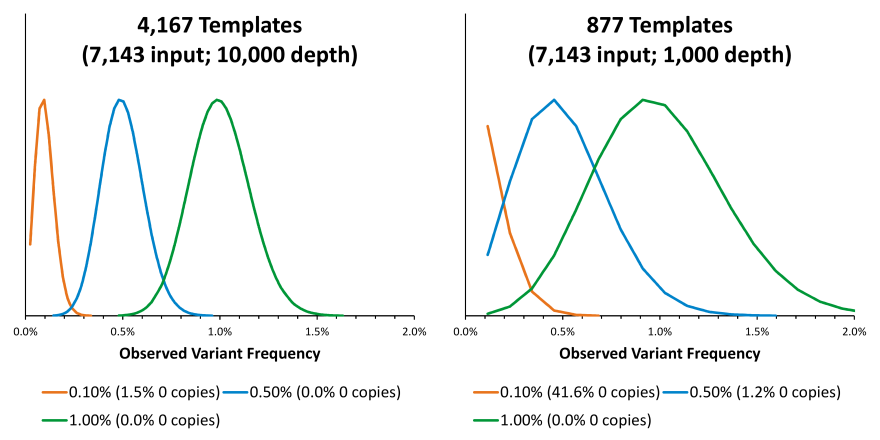Choose your Article Focus | NGS | Molecular & Serology
Dr. Andrea Ferreira-Gonzalez on the Seven Benefits of Clinical Genomics Universal Standardization
Category: clinical genomics, NGS
Posted by
Dale Yuzuki on Jun 22, 2017 12:00:00 AM
As a 25-year veteran of clinical molecular diagnostics, Dr. Andrea Ferreira-Gonzalez has seen many changes in genetic technologies used in the testing laboratory. With the advent of personalized medicine and using multi-gene NGS panels as a laboratory-developed test, Dr. Ferreira-Gonzalez and other experts have agreed to lend their expertise to the design of SeraCare’s reference materials. She and other groups have participated in an interlaboratory test of standardized reference materials for detecting cancer somatic mutations, with results that will be published in the coming months.
0 Comments Click here to read/write comments
Dr. Andrea Ferreira-Gonzalez on the Seven Benefits of Clinical Genomics Universal Standardization
Category: clinical genomics, laboratory training, NGS, reference materials
Posted by
Dale Yuzuki on Jun 22, 2017 12:00:00 AM
As a 25-year veteran of clinical molecular diagnostics, Dr. Andrea Ferreira-Gonzalez has seen many changes in genetic technologies used in the testing laboratory. With the advent of personalized medicine and using multi-gene NGS panels as a laboratory-developed test, Dr. Ferreira-Gonzalez and other experts have agreed to lend their expertise to the design of SeraCare’s reference materials. She and other groups have participated in an interlaboratory test of standardized reference materials for detecting cancer somatic mutations, with results that will be published in the coming months.
0 Comments Click here to read/write comments
Futureproof Your Clinical Genomics Lab’s Compliance: 3 Tips to Prepare for Potential Requirements
Category: FDA, clinical genomics
Posted by
Dale Yuzuki on May 18, 2017 12:00:00 AM
While clinical genomics labs (those running NGS-based laboratory developed tests) are not currently subject to FDA oversight, that doesn’t mean they won’t be someday. The question is, how soon will that day come and, when it does, will your lab be ready?
0 Comments Click here to read/write comments
3 Tips for Reducing the Costs of Running Your Clinical Genomics Lab (While Maintaining Accuracy and Efficiency)
Category: clinical genomics
Posted by
Dale Yuzuki on May 9, 2017 12:00:00 AM
When you’re in charge of quality control (QC) for a clinical genomics testing laboratory, you know that one word — quality — casts a wide net. For you, quality means (among many other things):
0 Comments Click here to read/write comments
3 Root Causes of Downtime for Clinical Genomic Testing Labs (and How to Recover Fast)
Category: clinical genomics
Posted by
Dale Yuzuki on Apr 20, 2017 12:00:00 AM
Downtime can be devastating to a clinical testing laboratory. The timely return of test results is critical for effective patient care. Any delay can hurt your lab’s reputation and prompt your customers to seek testing services elsewhere. Unfortunately, any clinical testing laboratory using sophisticated next-generation sequencing or other genetic analysis technology will suffer downtime sooner or later. The question is, how fast can you recover? What Causes Downtime? There are myriad factors that could cause your laboratory to cease operations: Simple operator error - anything from a sample mix-up to a PCR contamination - can cause a downstream problem that can take days or weeks to identify and correct. Poorly-performing vendor supplied reagents, kits, instruments, or software. Operators Are Human; Mistakes Can and Do Happen As it makes its way through your lab, a patient sample interacts with a wide range of operators, materials, and instrumentation. Mistakes can creep in at any point along this process, including: Labeling and accessioning. The use of particular reagents. The setting of instrument parameters. The informatics pipeline. When an error does occur, it can take a long time and a lot of effort to determine root cause and take action to fix it. Without an appropriate reference standard, the problem becomes more complex, as the number of potential causes increases exponentially. Here is an example:
0 Comments Click here to read/write comments
Highlights from the Precision Medicine World Congress
Category: FDA, clinical genomics, ngs validation, NGS, cancer, EGFR
Posted by
Russell Garlick, PhD on Feb 15, 2017 12:00:00 AM
On January 23-25, 2017 the Precision Medicine World Congress was held in Mountain View, California. The PWMC conference kicked off with Dr. Keith Yamamoto, Vice Chancellor for Science and Policy and Strategy UCSF, with Dr. Robert Califf, FDA Commissioner in a “fireside chat” format. Dr. Califf has been with the FDA for 2 years, has served as Commissioner for 11 months, but has resigned as of January 20th 2017. One of his important parting thoughts presented was how the FDA has been re-energized by the >21st Century Cures Act to hire new scientific talent to implement the President’s Precision Medicine and Cancer Moonshot plans.
0 Comments Click here to read/write comments
Multiplexed Reference Materials as Controls for Cardiomyopathy Diagnostic Next-Generation Sequencing
Category: clinical genomics, NGS
Posted by
Dale Yuzuki on Dec 13, 2016 12:00:00 AM
Hypertrophic Cardiomyopathy (HCM) is a disease where the heart muscle is enlarged and a significant cause of sudden cardiac death, and is frequently asymptomatic. HCM is commonly caused by a mutation in one of nine heart muscle genes that comprise the sarcomere, and occurs at a prevalence of about 1 in 500 in the general population. HCM is the leading cause of cardiac death in young athletes in the United States. Clinical genetic testing for mutations in the HCM-related genes has been ongoing for over a decade; the GeneTest.org database reveals 105 laboratories offering some version of genetic testing. While knowledge of prevalent pathogenic variants are available, the majority of variants remain private (that is, unpublished and not widely available). The move to NGS-based gene panels for HCM testing has lead to new challenges for test development, validation and routine quality control due to the inherent scarcity of samples, the cost of including numerous single mutations from these individual samples, and the lack of these materials for laboratories without a long history of testing.
0 Comments Click here to read/write comments
Reference Materials for Your Unique Reproducibility Needs
Category: FDA, SeraSeq, clinical genomics, NGS, reference materials
Posted by
Matt Ryder on Oct 12, 2016 12:00:00 AM
If you took a university introductory statistics course, you may have learned the distinction between accuracy and precision. It may likely have been presented with an archery analogy, where ‘Accurate’ was represented by arrows loosely clustered around the target’s bull’s-eye, ‘Precise’ was shown as a tight grouping displaced from the center, and ‘Accurate and Precise’ was depicted as what every archer aims for, a tight grouping directly at the bull’s-eye. Suddenly, words that are used interchangeably in everyday conversation took on dramatically different meanings.
0 Comments Click here to read/write comments
FDA-AACR Liquid Biopsies in Oncology Drug and Device Workshop
Category: FDA, clinical genomics, NGS, cancer, LDT, ctDNA, reference materials
Posted by
Yves Konigshofer, PhD on Aug 8, 2016 12:00:00 AM
The presentations during the FDA-AACR Liquid Biopsies in Oncology Drug and Device Development Workshop on July 19, 2016 included several important pieces of information that will likely guide the development of assays and their review by the FDA.
0 Comments Click here to read/write comments
IVD Guidance for NGS Manufacturers
Category: FDA, clinical genomics, NGS, LDT, reference materials
Posted by
Russell Garlick, PhD on Jul 14, 2016 12:00:00 AM
After 17 months of deliberations since its first open meeting February 20, 2015 on NGS IVD assay oversight, the U.S. Food and Drug Administration (FDA) issued DRAFT guidance for Stakeholders and FDA staff. The document “Use of Standards in FDA Regulatory Oversight of Next Generation Sequencing (NGS)-Based In Vitro Diagnostics (IVDs) Used for Diagnosing Germline Diseases” was published online on July 6, 2016. This document (PDF located here) is for analytical validity and not for clinical validation.
0 Comments Click here to read/write comments












